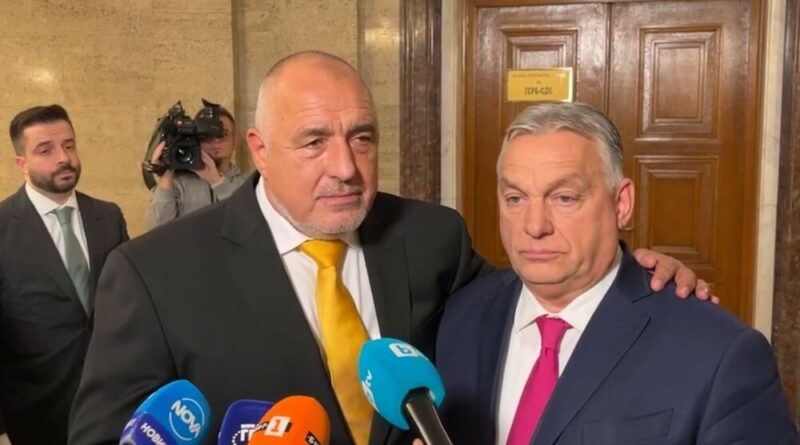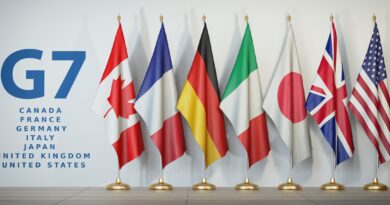The Challenges of Managing Russian Political Risk in Bulgaria
Western politicians, from Angela Merkel to Barack Obama, who believed they could understand Vladimir Putin and engage with him, faced harsh political consequences after Russia’s annexation of Crimea in 2014, and even more so following its full-scale invasion of Ukraine in February 2022. Former President Donald Trump, however, has yet to grasp a fundamental truth: the political risk posed by Putin’s Russia is unmanageable, as Putin remains steadfast in his mission to undermine global order and security. Similarly, Bulgaria’s President Rumen Radev and former Prime Minister Boyko Borisov exemplify a failure to comprehend and mitigate Russian political risks, compounded by the influence of Viktor Orbán’s policies.
The Role of the TurkStream Pipeline
Borisov remains mired in Soviet-era rhetoric, famously referring to the TurkStream pipeline as a “pipeline of friendship. This label is absurd, given that the pipeline is carrying gas that is fueling a war that is killing Ukrainians. Such rhetoric is not only misguided, but a calculated attempt to manipulate public opinion, casting Bulgaria in a deeply troubling light as it continues to enable Russia’s energy agenda and the sale of its “blood” gas.
The Ongoing Sanctions Dilemma
While Hungary and Turkey have secured temporary sanctions exemptions, Bulgaria remains paralyzed, awaiting a potential waiver to allow payments from Gazprom Export to Bulgartransgaz via Gazprombank (GPB). This situation is further complicated by Borisov and Radev implicitly blaming the United States for sanctions against GPB, a narrative that conveniently aligns with Putin’s justification for the invasion of Ukraine.
The link between the Turk/Balkan Stream pipeline and the Kremlin’s aggression is well-documented. Bulgaria’s contradictory policy—ostensibly supporting the EU’s stance on Ukraine while effectively bolstering Russia’s war machine—renders it a de facto Trojan horse within the EU. This troubling alignment echoes warnings issued as far back as 2008 by Vladimir Chizhov, Russia’s long-time EU representative.
Financial and Strategic Contradictions
Bulgaria’s contributions to Ukraine’s defense, both financially and militarily, are negligible compared to the significant revenues it enables Russia to accrue through energy sales. This paradox places Sofia at the top of the EU’s enablers of Russia’s war effort, undermining its credibility within the bloc.
GERB’s erratic stance on Ukraine adds to this conundrum. Viktor Orbán’s recent visit to Sofia highlighted the shared resolve of Borissov and Radev to bolster Orbán’s political and financial ties to Moscow. Despite GERB’s initial support for a security agreement with Ukraine, Borissov quickly reversed this position during a closed-door meeting with Orbán. This meeting seemingly prioritized Orbán’s ambition to form an Eastern European bloc—including Slovakia—that would weaken EU solidarity on Ukraine and other key issues.
Orbán’s Geopolitical Maneuvering
Hungary’s influence on Bulgaria is a largely overlooked phenomenon. Orbán has received undue credit for Bulgaria’s progress toward Schengen accession—a development driven more by wartime logistical needs than by his efforts. Simultaneously, Orbán’s role in stoking anti-Bulgarian sentiment in Serbia and North Macedonia remains unaddressed, further straining regional relations.
Orbán continues to leverage his connection with Donald Trump, though the long-term utility of this relationship is uncertain. Despite meetings between Borissov and Orbán reportedly focusing on critical issues like Russian gas flows and Lukoil’s acquisition of Bulgarian assets, these topics remain conspicuously unspoken in public discourse.
Bulgaria’s Precarious Position in Russian Gas Transit
There is no plausible scenario in which Hungary would assume financial responsibility for gas transit under the Gazprom Export-Bulgartransgaz contract. Similarly, the likelihood of the United States granting exemptions to allow Gazprom Export payments for transit via Bulgaria remains slim.
Conclusion
Bulgaria finds itself navigating an increasingly precarious geopolitical landscape, characterized by inconsistent policies, a lack of strategic foresight, and an overreliance on Russian energy. Its contradictory actions not only jeopardize its credibility within the EU but also risk solidifying its role as a facilitator of Russian influence. For Bulgaria to emerge from this quagmire, it must adopt a cohesive, forward-looking approach that prioritizes energy independence, regional stability, and alignment with EU values. Failure to do so will only deepen its entanglement in geopolitical risks it is ill-prepared to manage.
Ilian Vassilev




